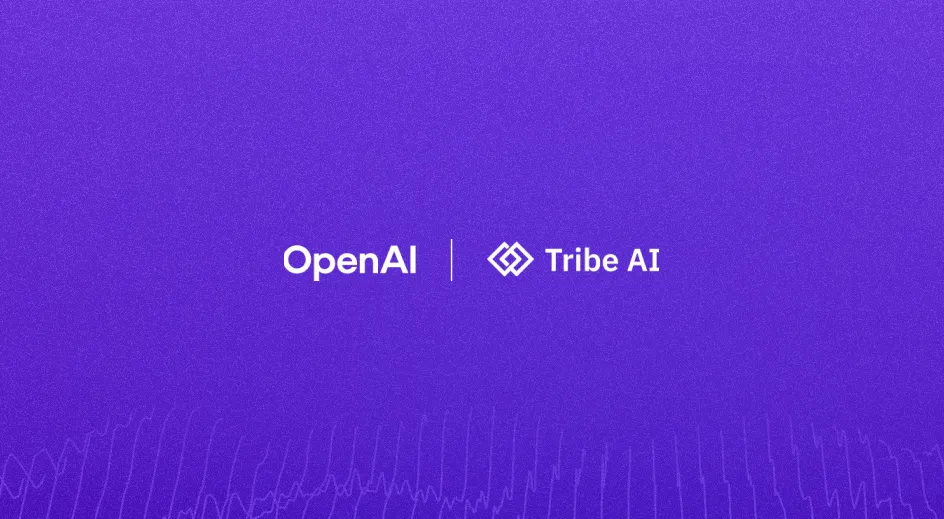More and more companies are turning to AI, not just as a trendy concept but as a way to work smarter, move faster, and stay ahead. In fact, 77% of organizations are already using or exploring AI to improve decision-making and get better results. It’s not some far-off technology. It’s already here, changing the way businesses operate.
But let’s be real. Bringing AI into a company can feel overwhelming.
The cost, the complexity, and whether your team is ready for the shift can all make it seem like more trouble than it’s worth. Without a clear plan, AI projects stall before they even get off the ground.
The good news?
Adopting AI doesn’t have to be complicated. The most successful companies follow a handful of smart strategies to make AI work for them without the headaches. Here’s how you can do the same.
How to Adopt AI Effectively
These seven steps will guide you through the adoption of AI at your company. Each one keeps you aligned with your objectives, so you don't waste resources on flashy tech that doesn't deliver.
When thoughtfully integrated, AI becomes more than a tool—it becomes part of your company's DNA, driving meaningful results that everyone can get behind.
Step #1: Define Clear Business Goals
Even the most advanced AI can’t hit the mark without a clear target.
Aligning AI initiatives with specific business goals ensures every effort contributes to your organization’s success. When your projects have clear objectives, they’re not just experiments—they’re strategic moves that gain support and make a real impact.
Clarity is key here.
Let’s say your goal is to boost customer satisfaction. In that case, AI-powered chatbots or personalized recommendations might be the way. Enhancing customer experiences through these AI applications can directly link AI to your mission, making each technological advancement a step toward achieving your vision.
Setting measurable targets—like improving customer retention by 15% or cutting operational costs by 10%—allows you to track progress and show return on investment (ROI). These concrete metrics demonstrate value to leadership and build momentum for more AI adoption.
By staying laser-focused on your goals, you can simplify AI adoption and turn it from a shiny new gadget into a practical tool that sharpens your competitive edge.
Step #2: Assess Your Data Readiness
Building an AI solution is like constructing a skyscraper—you need a solid foundation.
Even the most promising AI projects can stumble without quality data and the right infrastructure. Conducting a thorough data readiness assessment helps you spot potential challenges in data quality, technology, and skills so you can tackle them before they become problems.
This approach ensures solid data infrastructure and promotes a data-driven culture across your company.
Here's how to assess your data readiness:
- Define Your Goals – Identify the problems AI should solve and the data required.
- Check Data Availability – Ensure relevant, up-to-date, and accessible datasets.
- Assess Data Quality – Verify accuracy and completeness; clean or expand data if needed.
- Review Tech Infrastructure – Ensure hardware and software can handle AI workloads.
- Establish Data Governance – Implement policies for privacy, security, and compliance.
- Evaluate Team Skills – Identify expertise gaps and plan for training or hiring.
- Ensure System Compatibility – Confirm AI tools integrate smoothly with existing systems.
- Use AI Readiness Models – Benchmark against industry standards to spot improvement areas.
By investing time in this assessment, you're not just going through the motions but laying a strong foundation for AI solutions that deliver real, actionable insights. It's about building confidence and ensuring you're ready to soar when you launch.
Step #3: Get Everyone on Board
AI adoption requires multi-sectoral involvement. Its success depends on collaboration and buy-in from everyone involved—from executives to frontline employees. Engaging and aligning stakeholders turns AI projects from isolated initiatives into company-wide movements that drive meaningful change.
Many organizations face challenges in effectively utilizing AI technologies due to issues such as poor data quality and insufficient training.
One effective strategy is to form a cross-functional team or task force. For instance, DBS Bank in Singapore created a team to streamline AI adoption, enhancing customer experience and operational efficiency. This approach broke down silos, built trust, and sped up innovation.
Education plays a big role, too.
Hosting workshops and training sessions demystifies AI, dispels myths, and empowers your team to contribute actively. Microsoft, for example, rolled out comprehensive AI training programs to help employees understand how AI could enhance their roles.
Open communication fosters a culture of transparency and collaboration.
Regular updates on project milestones keep everyone in the loop, turning skepticism into support. This collective effort accelerates your company’sAI adoption. Procter & Gamble used this tactic when introducing AI into their supply chain, leading to better demand forecasts and streamlined operations.
By bringing together diverse perspectives and expertise, you simplify AI adoption and create a shared ownership of AI initiatives. This unity fuels progress and embeds AI into the fabric of your company’s culture.
Step #4: Map Out a Winning AI Strategy
Developing a comprehensive AI implementation strategy turns your objectives into actionable steps, ensuring your initiatives are structured, scalable, and sustainable.
Start by outlining clear objectives that align with your business goals. Whether you're improving product development or cutting operational costs, specify how AI will help you achieve these aims.
By aligning AI development with business objectives, you ensure your AI strategy supports your company's overall mission. This clarity keeps your team focused and your stakeholders informed.
Create a timeline with realistic milestones.
Early wins are crucial—they build confidence and show that AI can deliver tangible benefits. You might start by improving efficiency in one department before rolling out successful solutions company-wide.
Define key performance indicators (KPIs) to measure progress. If your target is boosting customer engagement, metrics like net promoter score (NPS) or customer lifetime value (CLV) can provide valuable insights. These KPIs not only track success but also highlight areas for improvement.
Use frameworks like the AI Canvas or AI Implementation Framework to guide your planning. Consider getting help from specialists who can tailor the strategy to your unique situation. They can offer valuable perspectives—from spotting quick wins to avoiding common pitfalls. For industries like finance, strategies for seamless AI adoption are critical to ensure smooth integration with existing systems.
Step #5: Start Small: Pilot and Prototype Generative AI Solutions
Jumping into AI doesn't mean diving in headfirst without a safety net.
Piloting and prototyping AI solutions let you test the waters, validate your ideas, and fine-tune your approach while keeping risks low. Begin by selecting a process or department where AI can immediately impact. Sales and marketing often offer opportunities for quick wins through improved lead targeting or personalized campaigns.
These early successes show ROI and build momentum for broader adoption. For example, transforming customer support with AI can be a high-impact pilot project that demonstrates value quickly.
Set clear goals and metrics for your pilot.
Know what success looks like—maybe it's a 20% increase in conversion rates or a reduction in customer churn. Collaboration is key here. Involve business teams to provide context, data scientists to develop models, and IT to ensure everything integrates smoothly.
Embrace an iterative process: build, measure, learn, and adjust.
This approach encourages continuous improvement, so when you're ready to scale, your solutions are solid and effective. Avoiding pitfalls in AI projects increases the chances of success.
O'Reilly's 2024 AI adoption study found that only 26% of AI projects progressed beyond the pilot phase. By investing in thoughtful prototyping, you're positioning your company among the successful few.
Step #6: Build Trust with Ethical Guidelines and Good Governance
As AI systems become more integral to decision-making, establishing ethical guidelines and strong governance isn't just a good idea—it's essential.
Incorporate ethical considerations into your AI models from the get-go. Be looking for biases that can slip through data selection or algorithm design. Make sure your AI systems are transparent, with decision-making processes that people can understand and audit.
This transparency builds trust and allows for quick fixes if something goes wrong.
Create a governance framework based on principles like fairness, accountability, and privacy. Focus on transparency, verifiable results, data privacy, and security. Enhancing data privacy with AI builds trust with customers and stakeholders. Set up an ethics committee with legal, technical, and business team members to oversee AI initiatives.
Regularly audit your AI systems and provide ongoing training for your teams. This proactive approach ensures you comply with regulations and societal norms, protecting your company from pitfalls. Examples of successful AI integration demonstrate the importance of ethics and governance in industries like healthcare.
By baking ethics into your AI strategy, you simplify adoption and build AI solutions that are responsible, reliable, and respected. Promoting ethical AI helps you overcome challenges and ensures long-term success.
Step #7: Keep Evolving: Continuously Scale and Optimize AI Solutions
AI is evolving at unprecedented rates. Continuously scaling and optimizing your AI solutions ensures they stay effective, relevant, and aligned with your business goals.
AI can handle boring, routine tasks, allowing employees to dedicate more time to creativity and innovation. This shift enables teams to devise new ideas and solutions, ultimately helping businesses differentiate themselves in a competitive landscape.
Adopt an iterative mindset—always be in a cycle of monitoring, learning, and improving. Your AI models should adapt as new data comes in and business needs change. This agility keeps your solutions sharp and your company ahead of the curve.
Implement best practices for data and algorithm management. Shared repositories with version control prevent duplication and make collaboration easier. Following principles like making your data and tools findable, accessible, interoperable, and reusable helps manage them efficiently.
Update your models regularly to reflect current trends and information.
An outdated model can lead to missed opportunities or flawed insights. Cloud-based platforms can provide the scalability you need without hefty upfront investments. Understanding how to scale AI projects effectively ensures your AI solutions grow with your business needs.
By treating your AI solutions as dynamic systems that need care and refinement, you simplify AI adoption and make sure they continue to deliver value. This commitment to ongoing optimization cements AI’s role as a powerhouse in your company’s toolkit.
Making AI Work for Your Business—Now and in the Future: Embracing Digital Transformation
Adopting AI isn’t just about rolling out new technology. It’s about making sure it fits your company’s goals, data, and people. Setting clear objectives, preparing your data, and getting buy-in from key stakeholders are all crucial steps in laying a strong foundation.
A structured approach—starting with small pilot projects—helps validate AI’s impact while minimizing risk.
At the same time, focusing on ethics and governance builds trust and ensures AI is used responsibly. But AI adoption doesn’t stop at deployment. The companies that see the most value treat AI as an evolving investment, continuously optimizing and refining their approach to keep up with changing needs.
When done right, AI isn’t just another tool. It’s a powerful driver of efficiency, innovation, and long-term growth.
If you're ready to transition from planning to execution, we're here to assist. At Tribe AI, our team comprises top researchers, engineers, and AI product leaders who have developed hundreds of AI applications across various industries. We collaborate with you at every stage—from strategy formulation to deployment—ensuring AI seamlessly integrates into your business for maximum impact.
Our experts bring deep specialization in both technology and industry verticals, connecting the right teams to the right projects. With our homegrown AI technology and modular components, we deliver differentiated technical results tailored to your unique needs.
Embark on your AI journey with confidence, knowing you have a dedicated partner committed to turning your AI aspirations into reality.













